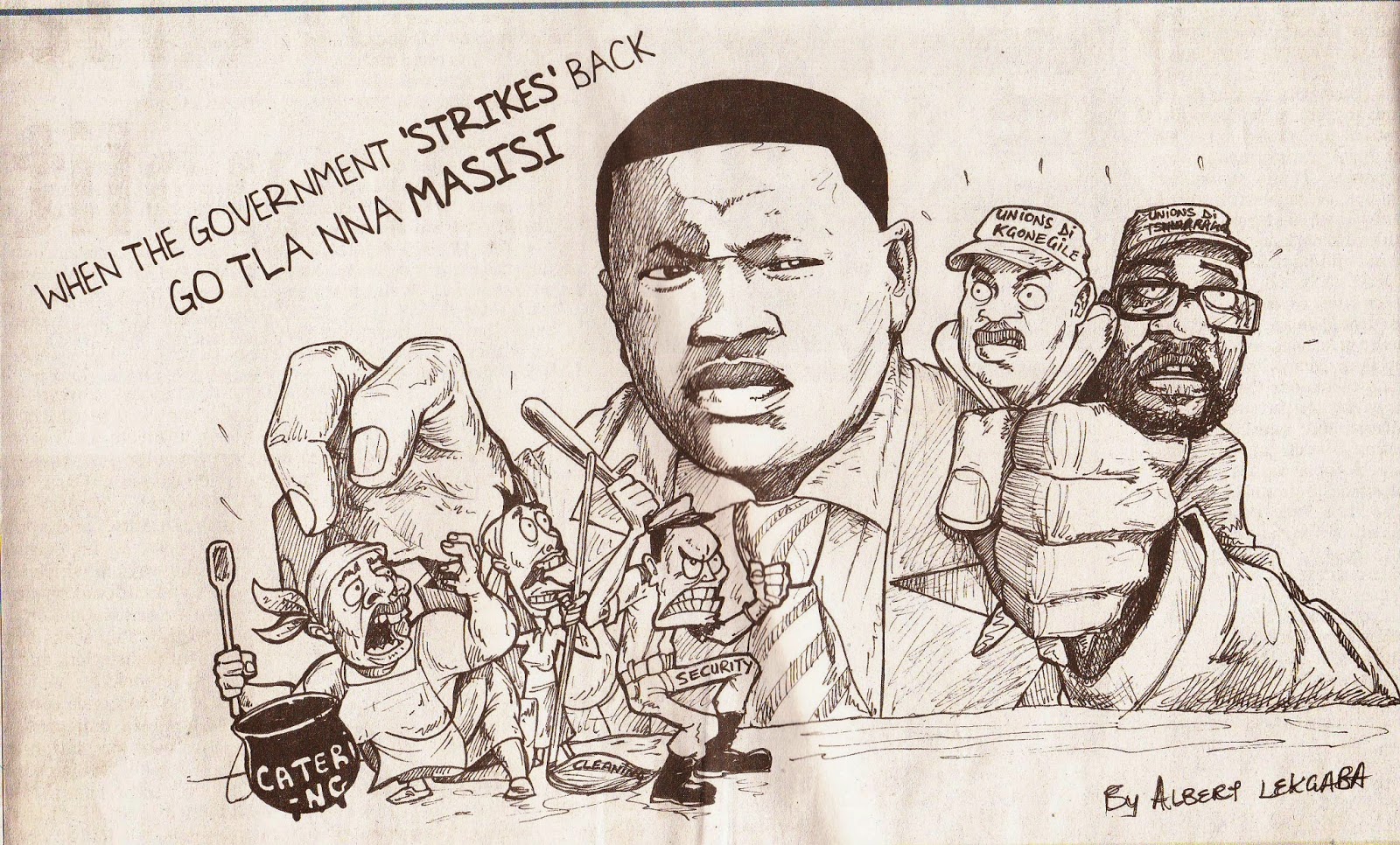Pnina Werbner
is Professor Emerita in Anthropology at Keele University and author of The Making of an African Working Class: Politics, Law and Cultural Protest in the Manual Workers' Union of Botswana (Pluto Press 2014). In this post Pnina considers how
Western ‘bad news’ perspectives on Africa disguises the strength of civil
society and trade unions in protecting democracy and the public interest.
About the same time Botswana 24
October 2014 , there were runoff presidential elections in Brazil Tunisia Botswana Botswana BCP ),
which had shortsightedly refused to join the main opposition alliance, thus
splitting the vote in many constituencies. But the writing was clearly on the
wall for the Botswana establishment: young people and city dwellers were fed up
with the status quo, which had led to allegations of cronyism, corruption,
secret surveillance and ‘tendrepreneurship’(corruption in awarding public
contracts), emanating in the popular view from presidential autocracy.
 |
| Cartoon of President Khama tied to a tree |
Despite his alleged autocracy, however, the
President, Lieutenant General Ian Khama, was a democratic, publicly committed
to giving up his office lawfully after two terms, as spelled out by the Constitution.
This would mean, in effect, passing the presidency onto his Vice-President
mid-term, as had happened when Khama himself became President. African
presidents are known for their repeated attempts to extend their constitutional
rights to office, clinging on to power come what may. In the case of Khama, the
prevailing rumour was that he intended to appoint his younger brother to the
vice-presidency, despite the latter's political inexperience and lack of
popularity. In the local press, headlines proclaimed Khama's ambition to create
a 'dynasty'. This led to a series of cliffhangers which tested Botswana
 |
| Unionist leaders in front of the High Court and Court of Appeal Building |
Before Parliament was dissolved it
passed a ruling allowing for the election of the Vice-President, the Speaker of
the House and the Deputy Speaker in parliament by secret ballot. After the
elections, the President, through the office of the Attorney General,
challenged this ruling in the High Court and later the Court of Appeal. The
accepted view was that an open ballot would allow him to intimidate members of
his own party, despite the widespread feeling, reported in the press, that
elected parliamentary members of the BDP strongly objected to the nomination of
the President's brother.
 |
| Cartoon of Masisi, now Vice-President, oppressing workers |
As always in Botswana Botswana Botswana
 |
| Duma Boko, leader of the Opposition, speaking to public sector union strikers |
As in Tunisia Brazil Botswana
The global media's myopia with regard to
Botswana Africa are growing in confidence and strength. It would
seem to be the duty of the media to support these nascent African democracies,
and at the very least report on their struggles, rather than engaging merely in
tired Afropessimistic reportage.
1 comment:
Very interesting and important to ensure that African 'good news' is given as equal an airing as the bad.
Post a Comment